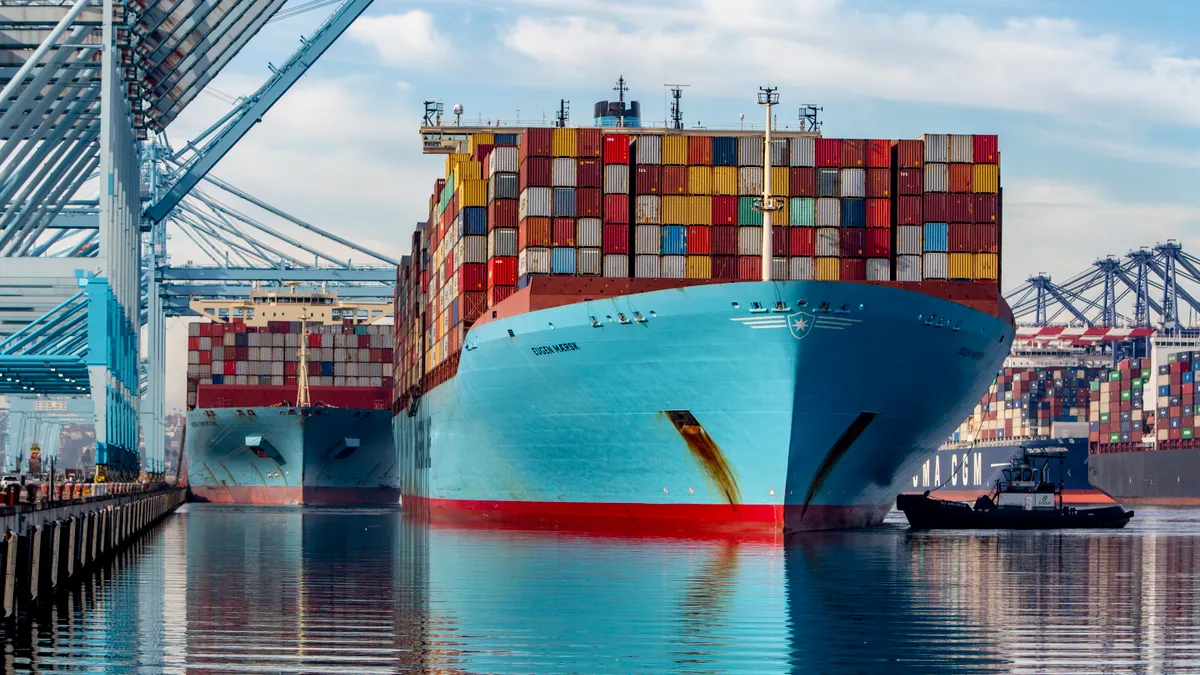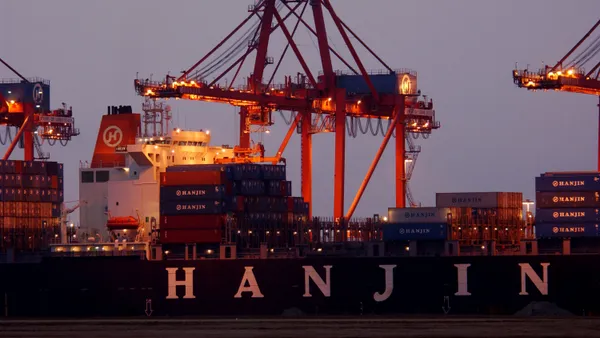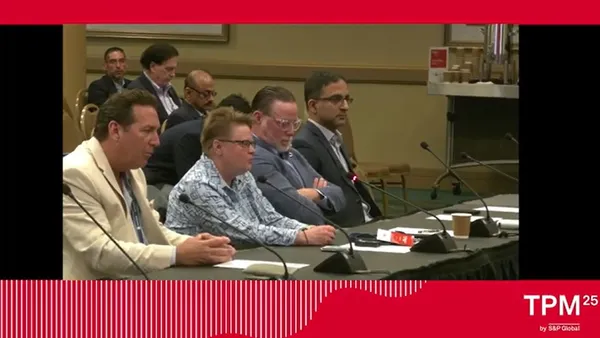Dive Brief:
- The COVID-19 outbreak and resulting quarantines have led to a record number of blank sailings, according to the latest figures from Alphaliner. Inactive fleet size has swelled to 2.04 million TEUs or 8.8% of global capacity. The decline is greater than the 1.52 million TEUs of canceled capacity during the 2009 financial crisis, the previous record, 11.7% of the total fleet at the time.
- The Ports of Los Angeles and Long Beach are facing 56 canceled sailings over the first three months of the year, the ports told Supply Chain Dive. The Port of Oakland is expecting 23 blank sailings for February through March, a spokesperson said.
- "Some production has shifted to other countries and in Southeast Asia — Thailand, Vietnam and Indonesia," Phillip Sanfield, the director of media relations for the Port of Los Angeles told Supply Chain Dive in an interview. "Unfortunately, for every container that is coming out of there we're losing two and a half from China so that it's not an equal trade-off but there is some boost," from other regions. The shift started as a result of the trade war before COVID-19, an illness in the coronavirus family.
Dive Insight:
The Ports of Los Angeles, Long Beach and Oakland are forecasting major year-over-year (YoY) drops in import volume as a result of the current outbreak, they told Supply Chain Dive.
The Port of Los Angeles expects the outbreak to result in a 25% YoY reduction in volume for February and a 15% YoY decline in overall volume for the first quarter of 2020. The 40 blank sailings the port will see between February and April 1 represent about 20% of the port's normal calls, Sanfield said.
The Port of Long Beach is planning for February volume to be down 6% YoY and expects to see a 12% YoY drop for the quarter, Lee Peterson, the media relations manager for the port, told Supply Chain Dive in an interview.
"We're definitely feeling it in a major way," Sanfield said.
Many factories around China have restarted production, but are running at lower production levels as a result of staffing shortages. China's Hubei Province, a major manufacturing hub and the region hardest hit by the outbreak, has asked facilities not to resume work before March 11.
"The re-opening of factories in China now sees demand gradually returning, but this cargo volume recovery is expected to take a few weeks," Alphaliner wrote in its most recent weekly newsletter.
If a company is able to get factories running, that doesn't mean suppliers will necessarily be operational or able to deliver on time. Jabil, a major Apple supplier, has dealt with similar issues, according to a recent research note from RBC Capital Markets.
"The current impact to Jabil primarily relates to (1) getting workers back to the factories, as certain travel restrictions are preventing workers from arriving back on site, and (2) there could be problems related to sourcing key materials i.e. maybe 90–95% of the product supplies are delivered, but there could be delays on the final 5– 10%," the note reads.
The impact of the disruption is expected to ripple through many companies' supply chains, leading Goldman Sachs to suggest that "US companies will generate no earnings growth in 2020," in a research note shared with Supply Chain Dive.
As the world scrambles to prevent the spread of COVID-19, the ocean shipping industry is set to converge in Long Beach, California next week for the TPM conference. The event's website is currently festooned with a banner reading "COVID-19 Precautions" to let readers know there will be an awareness campaign to encourage attendees to avoid handshaking and an "ample supply of hand sanitizer."













